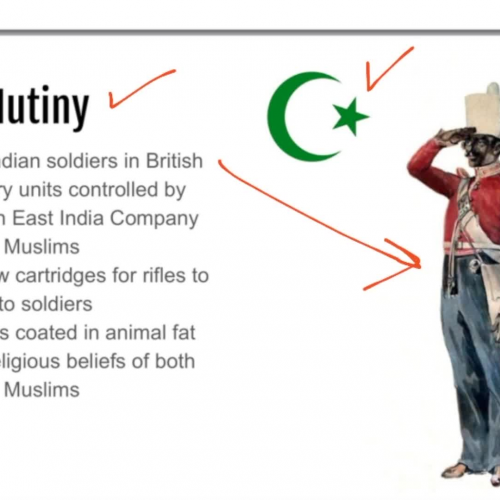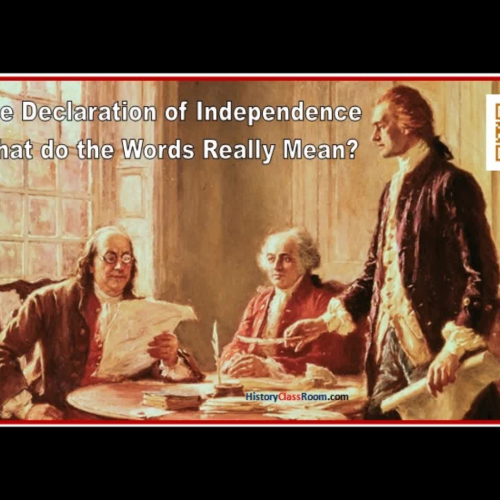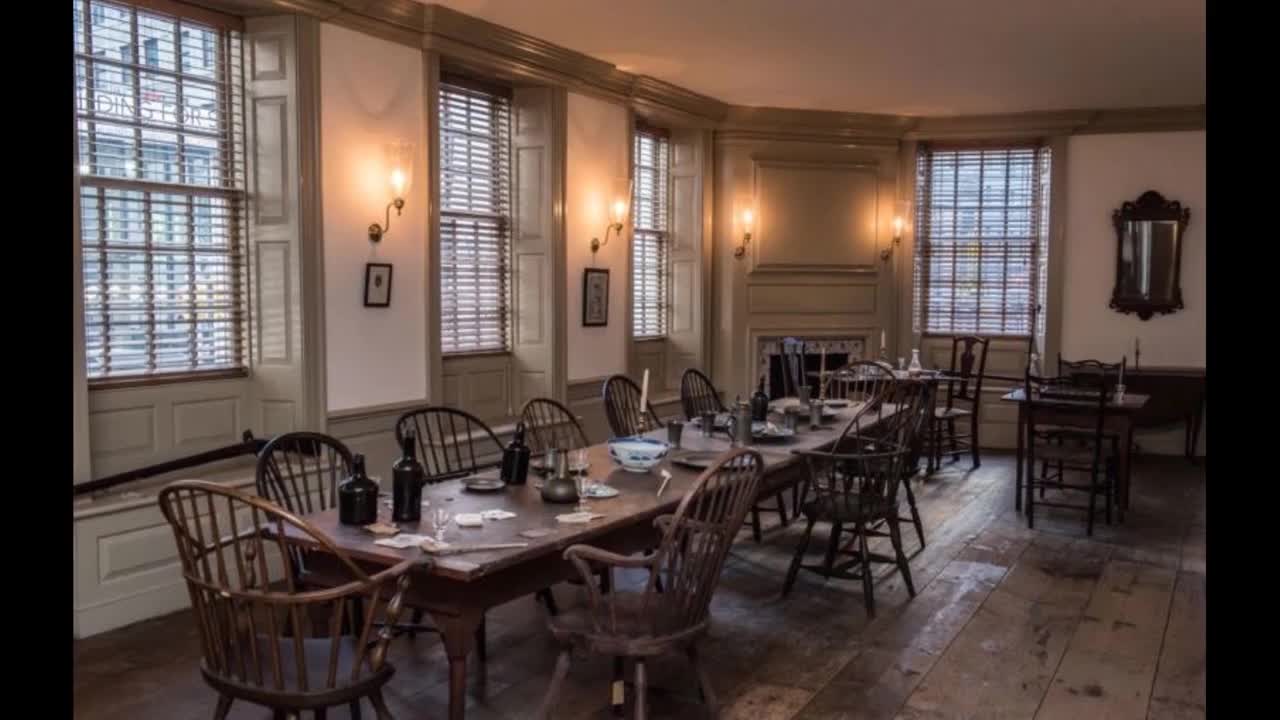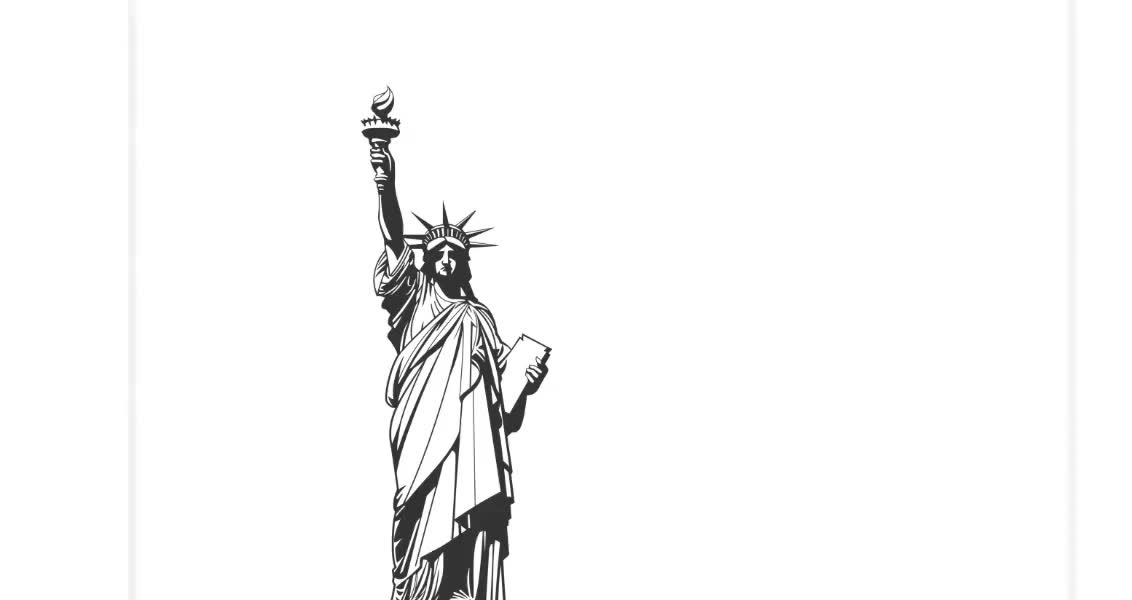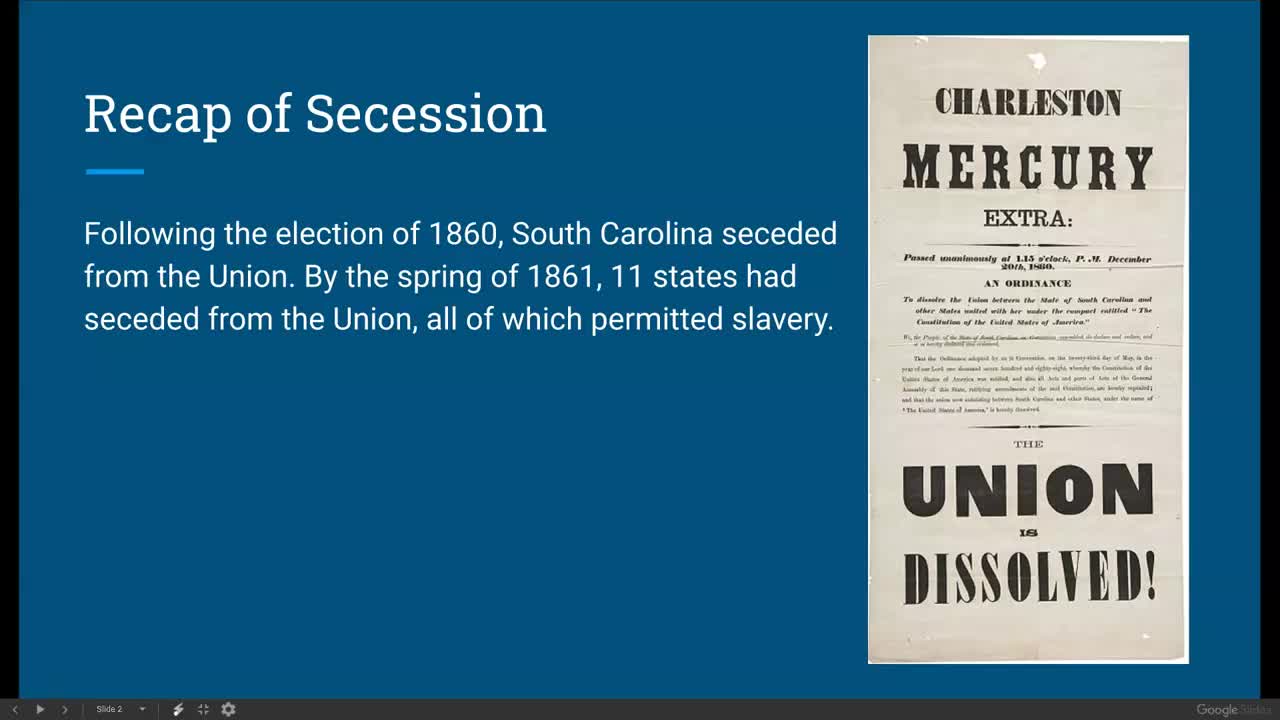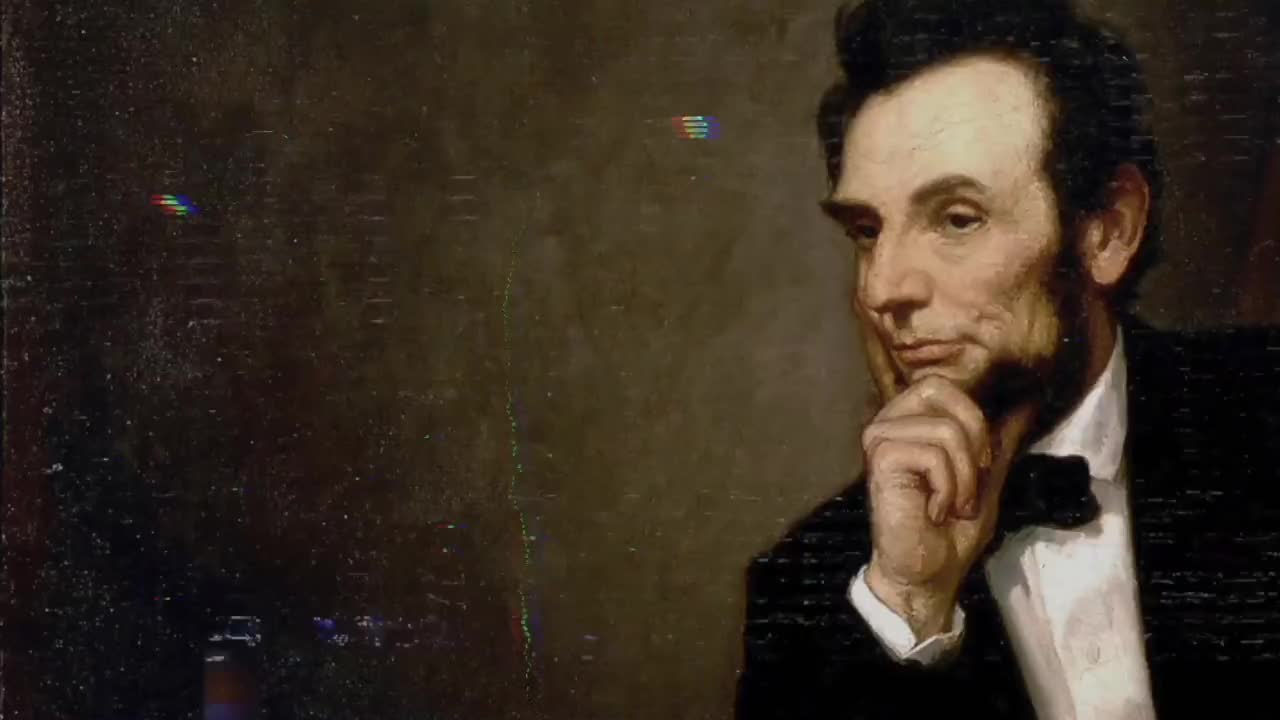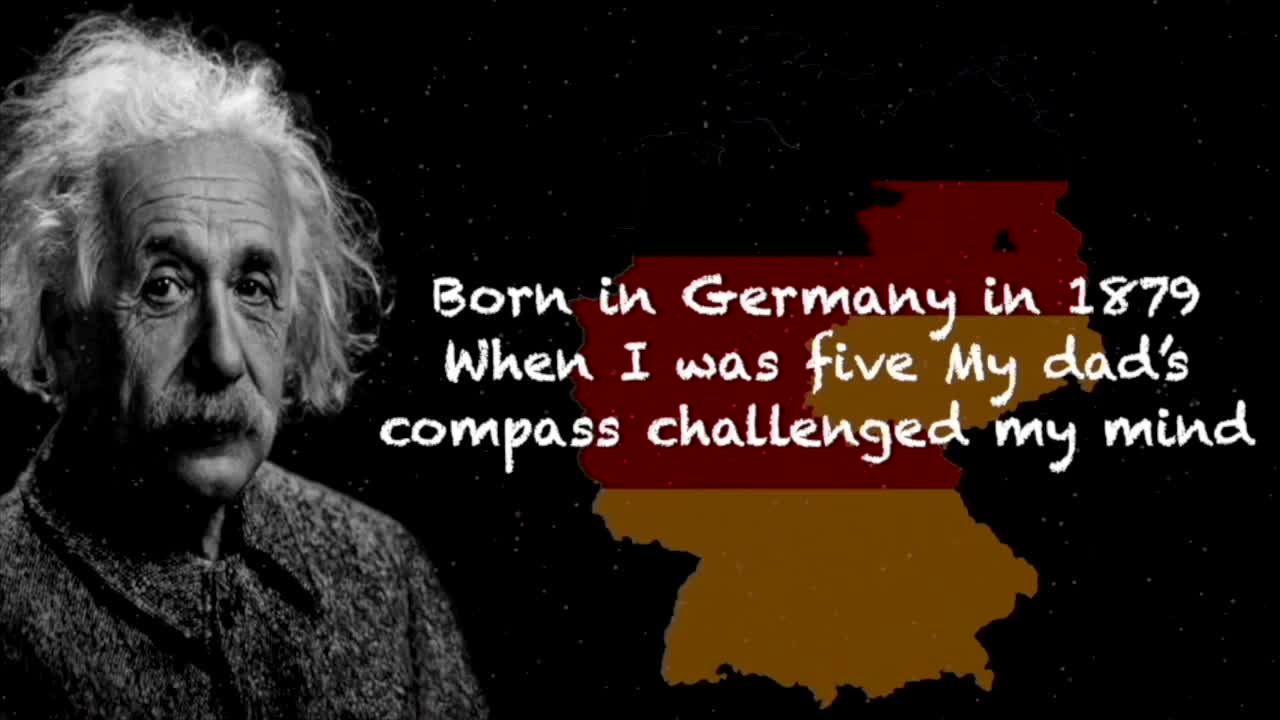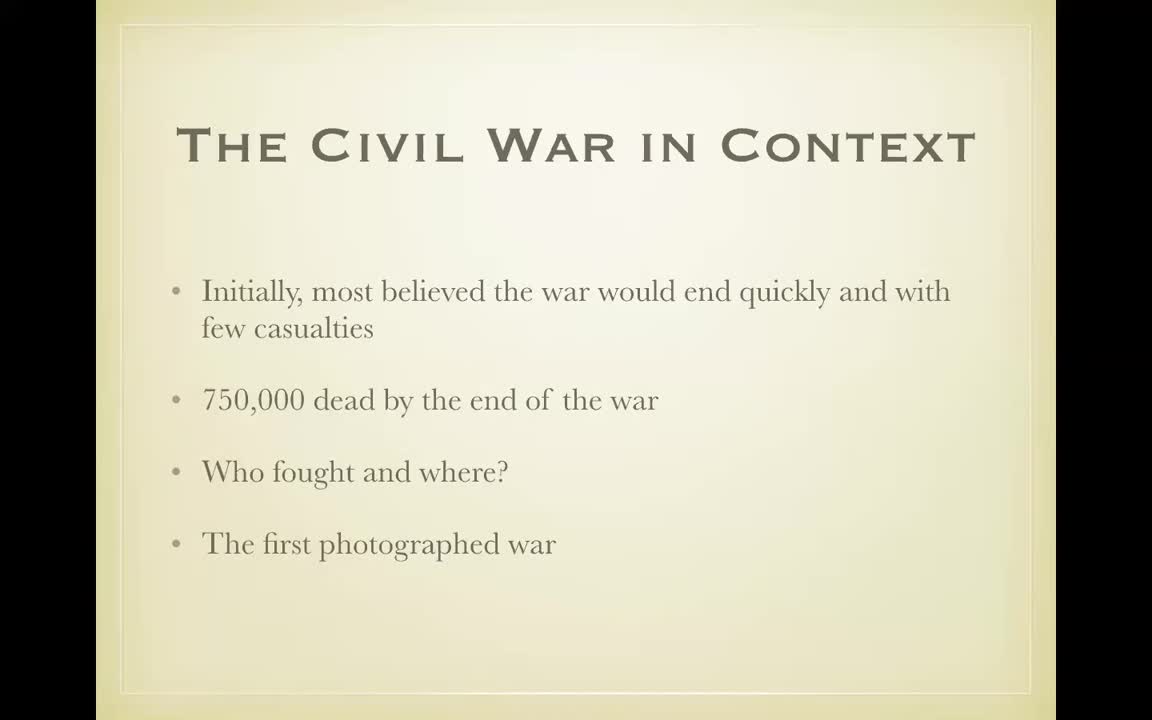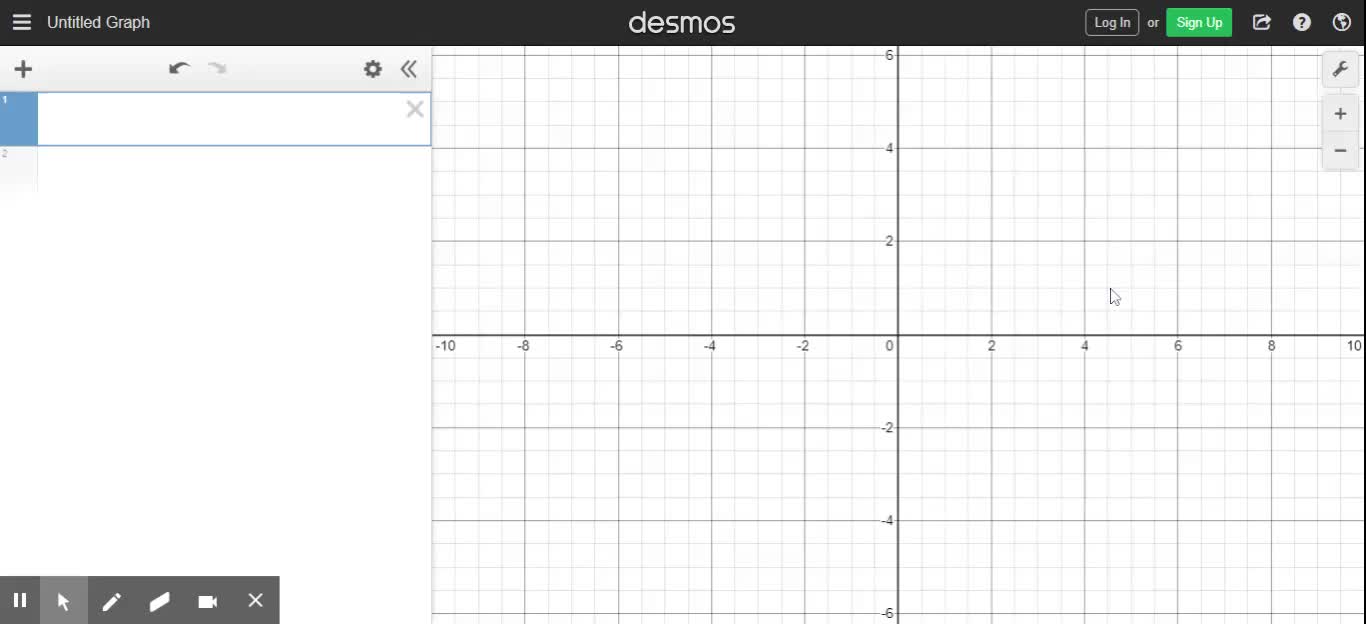British Imperialism in India
High School / History / Great Britain Ireland History
Okay, we're gonna take a look at our case study that we did on India and do a little quick review looking at imperialism. We've already covered the causes of the pure Liz and we're going to see those at play when we look at India as a colony for England. So let's do a quick little review of what we did in class. England and India had developed trading relationships starting in the 1600s. So England exploring the coastal area of England's I'm sorry, India had developed trade relationships with many of the different princes in the small kingdoms in India. And this is done by the British East India Company and you can see here on the map that all the areas and pink mostly around the coast are actually areas controlled. By the British East India Company. So we've been referring to this as economic imperialism or a sphere of influence. There is no direct control of the government at this time. But the British East India Company is obviously influencing local governments. And controlling trade and resources in that area and in the approved to be very profitable to the British. Something India becomes a very valuable colony. In the future, royal colony. So let's talk about some reasons why India becomes a very valuable colony. First of all, India has a rather large population at this time, so we're looking at the 17 and 1800s. We're looking at 3 million people living in deer. And that's a very ideal for the British because those people are potential workers who do work on plantations growing crops, harvesting, transporting, but also more importantly consumers. So the birds will be able to export goods to India for sale. Okay, so I'm pretty sure you're going to export goods to India and they're going to sell them and make a lot of money. India itself is a vast large reason has awesome natural resources. And that's really the second major reason why it becomes very important. So indigo, coffee, especially cotton. It's not a cute or resources that are available in India and are in very high demand, especially cotton. As we know, India has for Ingram has a huge textile industry. When they take cotton spinach thread, weaving in a textiles, and then sell it around the world. Also with having access to India, it also means you have access to Asia. So you can trade in China. Southeast Asia and the South Pacific, you can also trade in Africa in the Middle East. So it is a very valuable colony for the British. And referred to it as the jewel in The Crown of the British Empire, so idea is pretty awesome in English. So let's look at the impact on local people in India. So number one, let's focus on the negatives. So with the British there, the Indian people have a loss of political and economic power. They're no longer making their own decisions about their government, the leaders, the local leaders of India, are become under the influence of the British and especially the loss of economic power. The British essentially take over all business in India and actually create laws that are passed to limit the development of Indian businesses, the British want to keep them underdeveloped, keep them not industrialized. Because of the cash crops like cotton. The development of food products decreases so the amount of food that's being planted make harvested available to eat is increasing at least in famine. Yeah, there's just not enough food to go around family needs to starvation. They're sickness disease and death. Okay, so we're going to see people dying because of a lack of food. Everyone's planting the cash crops. We also have remember religious implications of peer listening. So the British are sending Christian missionaries over their tutorial for the Indian people, which they don't like season attack on their culture. And we also see very strong racist attitudes that will get worse after the sequent beauty which we'll cover here voluntarily. There are some positives to produce imperialism for the British to operate in India. They need to modernize the country. So you're going to see things like railroads to the looking roads developing the telegraph telephone for communication dams, bridges, and irrigation. I got your set bridges to have his bridges irrigation are going to improve planting of crops. So improved irrigation preventing a flooding from monsoons and the rainy season. Improved sanitation in the city's schools and colleges to train and elite class of literacy rate and beer will be increased tribal warfare will and essentially due to the presence of British military forces. And the country does become more united. So there are some positives. Most of those positives are not really going to benefit the Indian people, but rather than the British. So they did these things not because they really cared about the Indian people. They care about them to a certain extent to keep them productive but really the modernization of India took place to help the British. So let's look at one of the major events which becomes a big turning point in the relationship between the England and India. And that's an event known as the sea court mutiny. So let's go over here represents our sepoy. Those are Indian soldiers who are working for the British East India Company. And the two main religions in India are the Hindus and the Muslims, okay? So a couple of things to know about them, of course, is the importance of meat in their diets and their restrictions due to their beliefs. So we have Muslims are not doing pork and induced or not unique any type of beef. Product. So why is that important in 1857, the British Army were getting their soldiers rifles and field of rifles, and there was a cartridge for those rifles that contained all the things that you need to fire or bullet. It was a way to speed up loading your rifle to protect these little mini cartridges and bullets, they were coated in animal fat to protect them from moisture and getting wet. So the rumor spreads that those cartridges are actually encased in animal fat and of course it would be pork and probably beef. So to use this cartridge you had to rip it open with your teeth and load it into your rifle and this would definitely violate the religious beliefs of the Hindus as well as the Muslims. This is something that they're not going to do. They don't even want to touch this cartridge. So violates their beliefs. The British really don't care about this because of remember social darwinism. They see the Indians as inferior. They are not Christians, so they're really not too concerned about the beliefs of the Indian people. Well, they probably should have been concerned because this leads to that called the sea point game, which lasts about a year. So 90 Z point soldiers refused to take these cartridges and rebel, they're thrown in jail. The other sea boys stationed in the area rebel as well. They began killing British soldiers, they also began killing their wives and children, and a big rebellion takes place. They march off and capture the city of Delhi in season the city. They're also killed British soldiers, their wives and children. So a lot of bad things start to happen. Rebellion spreads into northern India. It's going to take the British about a year to pull up to the rebellion down. And British troops are sent to put down the seapoint union. And this is a really big turning point in the relationship between India and England. And the result of the mutiny and the impact of the museum is that the British government is now going to take control. So I think it's going to come essentially a royal Ptolemy. Officially part of the British Empire under the rule of the British Crown. This is not a garage. So our AJ garage, the rajas, time period, where the British government takes control of India. They're going to increase their control more importantly, he shows the British that these people are savage, they're not to be trusted and really increases the racist attitudes towards the Indian people. You can see that you're in kitchener's quotes where he talks about the superiority of the British. It doesn't matter how educated or clever, a native does matter is or how you may prove himself. That there's no way that the person would be equal to a British officer. Yes, you see evidence of the racism of the prejudice here towards the enemy people. So the relationship between India and England lasts for a long period of time in England will hold India as a colony until 1947 when Mahatma Gandhi and many others lead to penance movement in India, which culminates with the Indian independence act in 1947. But that's not really the end of the story. Remember we have Muslims and we have Hindu people in India. There's also another group called so when England left the decided to partition or divide India. Now that's going to cause a lot of problems as you can see on the map and the orange section here becomes a nation of Pakistan that's actually becomes East Pakistan over here. The great part becomes India. So what happened during this partition? Well, people who were Muslim living in India are going to leave and go to Pakistan. Hindus seeks who are living in that area that's not Pakistan are going to leave and go to India. And vice versa. So there's a mass movement of about 14 million people and during this mass movement of people, violence broke out there was about a million deaths in total as people killed raped her people who were fleeing and being in their area. Very, very, very violent stuff that really plants the seeds of a lot of the issues that are going to come up later on. But in 1971, East Pakistan here wanted to dependence to break away from Pakistan and the nation of Bangladesh, India supported them in that. Which really angered heck of Sam, there's also an area up here in the northern part called Kashmir. Which is divided in half, half of Kashmir belongs to Pakistan half belongs to India and they've been fighting over that for about 40 plus years or so. So we have the conflict over the state of Kashmir. And this continues to boil over and if it's very dangerous, what you can see from both sides have nuclear weapons. So is the conflict between Pakistan and India, the result of British imperialism. Maybe not a 100%. Muslims and Hindus seek have been having issues long before the British showed up. But because of how the British divided the country after they left because of how they sort of created this class, obviously it has played a role in the relationship that now exists between the VA and Pakistan.




